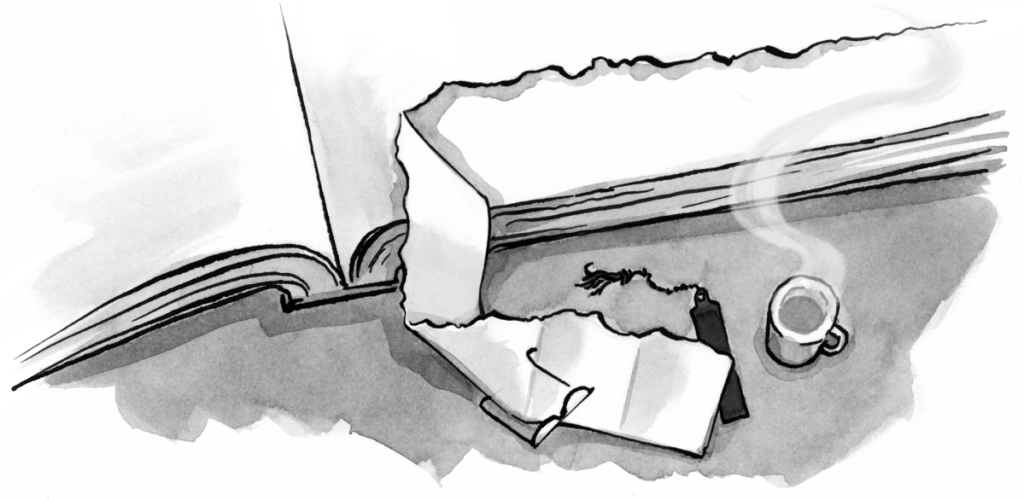Not long ago at the Refresh Pittsburgh meetup, I saw my good friend Ben Callahan give his short talk called Creating Something Timeless. In his talk, he used examples ranging from the Miles Davis sextet to the giant sequoias to try to get at how we—as makers of things that seem innately ephemeral—might make things that stand the test of time.
Article Continues Below
And that talk got me thinking.
Very few of the web things I’ve made over the years are still in existence—at least not in their original state. The evolution and flux of these things is something I love about the web. It’s never finished; there’s always a chance to improve or pivot.
And yet we all want to make something that lasts. So what could that be?
For me, it’s not the things I make, but the experience of making them. Every project we’ve worked on at Bearded has informed the next one, building on the successes and failures of its predecessors. The people on the team are the vessels for that accumulated experience, and together we’re the engine that makes better and better work each time.
From that perspective it’s not the project that’s the timeless work, it’s us. But it doesn’t stop there, either. It’s also our clients. When we do our jobs well, we leave our clients and their teams more knowledgeable and capable, more empowered to use the web to further the goals of their organization and meet the needs of their users. So how do we give our clients more power to—ultimately—help themselves?
Not content (kənˈtent) with content (ˈkäntent)#section2
Back in 2008 (when we started Bearded), one of our differentiators was that we built every site on a CMS. At the time, many agencies had not-insignificant revenue streams derived from updating their clients’ site content on their behalf.
But we didn’t want to do that work, and our clients didn’t want to pay for it. Building their site on a CMS and training them to use it was a natural solution. It solved both of our problems, recurring revenue be damned! It gave our clients power that they wanted and needed.
And there are other things like this that gnaw at me. Like site support.
Ask any web business owner what they do for post-launch site support, and you’re likely to get a number of different answers. Most of those answers, if we’re honest with ourselves, will have a thread of doubt in their tone. That’s because none of the available options feel super good.
We’ll do it ourselves!#section3
For years at Bearded we did our own site support. When there were upgrades, feature changes, or (gasp!) bugs, we’d take care of it. Even for sites that had launched years ago.
But this created a big problem for us. We were only six people, and only three of us could handle those sorts of development tasks. Those three people also had all the important duties of building the backend features for all our new client projects. Does the word bottleneck mean anything to you? Because, brother, it does to me!
Not only that but, just like updating content, this was not work we enjoyed (nor was it work our clients liked paying for, but we’ll get to that later).
We’ll let someone else do it!#section4
The next thing we did was find a development partner that specialized in site support. If you’re lucky enough to find a good shop like this (especially in your area) hang on to them, my friend! They can be invaluable.
This situation is great, because it instantly relieved our bottleneck problem. But it also put us in a potentially awkward position, because it relied on someone else’s business to support our clients.
If they started making decisions that I didn’t agree with, or they went out of business, I’d be in trouble and it could start affecting my client relationships. And without healthy client relationships, you’ve got nothing.
But what else is there to do?
We’ll empower our clients!#section5
For the last year or two, we’ve been doing something totally different. For most of our projects now, we’re not doing support—because we’re not building the whole site. Instead we’ve started working closely with our client’s internal teams, who build the site with us.
We listen to them, pair with them, and train them. We bring them into our team, transfer every bit of knowledge we can throughout the whole project, and build the site together. At the end there’s no hand-off, because we’ve been handing off since day one. They don’t need site support because they know the site as well as we do, and can handle things themselves.
It’s just like giving our clients control of their own content. We give them access to the tools they need, lend them our expertise, and give them the guidance they’ll need to make good decisions after we’re gone.
At the end of it, we’ve probably built a website, but we’ve also done something more valuable: we’ve helped their team grow along with us. Just like us, they’re now better at what they do. They can take that knowledge and experience with them to their next projects, share that knowledge with other team members, and on, and on, and on.
What we develop is not websites, it’s people. And if that’s not timeless work, what is?




